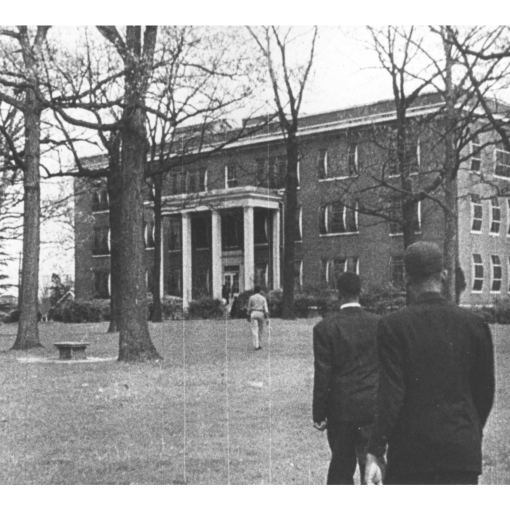Beyond Black Wall Street: Durham’s Business Legacy
Beyond Black Wall Street: A journey of resilience, creativity and innovation rooted in the history and promise of Black entrepreneurship and ownership in Durham.
This story is a part of our African American Heritage Guide Project, a printed guide and collection of stories about Durham's Black history, culture, community and entrepreneurship created by Black writers, poets and artists. Find more stories and information about the guide.
Ask anyone living in the Triangle region about Durham and you may hear them say something like “Durham, there’s just an energy.” or “Durham is such a vibe.” I’ve noticed that they often struggle to find the words to explain what they mean, but as they attempt to describe Durham’s brilliance, I sense that they know that there is something incredibly special about this place and those who made it so. As a Black woman business owner in Durham, I know, firsthand, what that energy is all about.
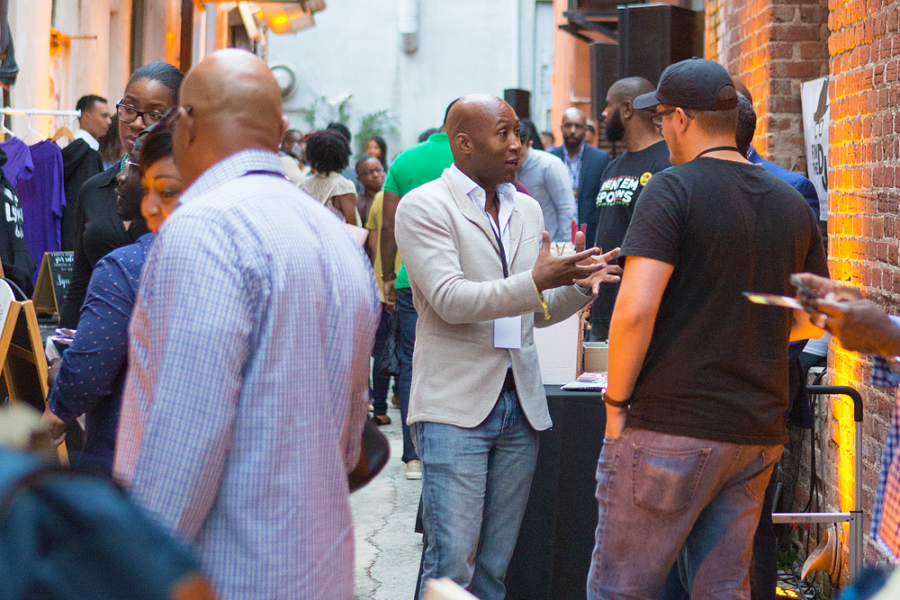
Even if you can't describe it, you can feel the impact of Black businesses in Durham, both past and present. Photo: Keenan Hairston
Durham is often celebrated for its rich history, culture and spirit of entrepreneurship. One of the most noteworthy aspects of Durham's story is the lasting legacy of Black-owned business. From the post-Civil War era to the present day, Black entrepreneurs have played a pivotal and inspiring role in shaping the overall landscape of our vibrant city. Durham's story of Black-owned business and entrepreneurship begins with the professionals whose work forged the foundations of a self-sustaining community: Fitzgerald bricks built the warehouses where tobacco and textile workers labored to bring Durham’s name to prominence; Julian Abele’s gothic designs are a defining feature of Duke University despite his never stepping inside the buildings he designed; Lincoln Hospital, Durham’s first hospital for African Americans was brought forth by Dr. Aaron M. Moore, Durham’s first Black physician. These individuals and more built the basis upon which Durham’s entrepreneurs could grow.
Roots of Black Entrepreneurship
The roots of Black entrepreneurship in Durham can be traced back to the late 19th and early 20th centuries. Following the Civil War and Reconstruction period, Durham experienced a surge in economic growth, primarily driven by the tobacco industry. Black entrepreneurs used this opportunity to establish businesses that catered to the needs of Black folks. Often, when Durham and Black business is mentioned, people automatically think of “Black Wall Street” and businesses like North Carolina Mutual and Provident Association founded in 1898 and later became North Carolina Mutual Life Insurance Company. Or, they think of Mechanics and Farmers Bank founded in 1907 and is now M&F Bank. The founders of these institutions wanted to make sure that their Black neighbors, families and friends had an opportunity to participate in the economy at generative, wealth-building levels.
And while Black Wall Street stands out as a symbol of Black entrepreneurship in Durham, it's important to note that Durham’s history of Black enterprise extends far beyond this iconic district. Founders of these companies in addition to other Black community members were building and operating grocery stores, barber shops, jazz clubs, training schools (what is now North Carolina Central University), hosiery mills, beauty salons, soul food restaurants and other essential services for the community – their community.
Throughout the city, these lesser-known Black-owned enterprises also made remarkable contributions to the economic and social structure. Created partially out of the spirit of ingenuity and innovation and partially out of Post-Reconstruction Era necessity, Durham became known as a thriving place for Black entrepreneurship and ownership.
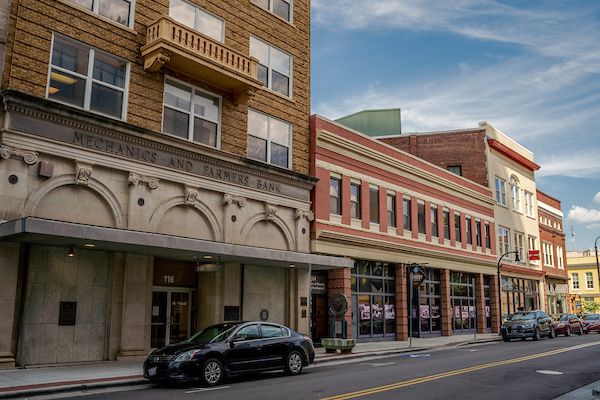
The historic Mechanics and Farmers Bank building still stands on Black Wall Street. Photo: Discover Durham
After visiting Durham, W.E.B. DuBois, the late sociologist, historian and civil rights activist, wrote in 1912,
“...today there is a singular group in Durham where a black man may get up in the morning from a mattress made by black men, in a house which a black man built out of lumber which black men cut and planed; he may put on a suit which he bought at a colored haberdashery and socks knit at a colored mill; he may cook victuals from a colored grocery on a stove which black men fashioned; he may earn his living working for colored men, be sick in a colored hospital, and buried from a colored church; and the Negro insurance society will pay his widow enough to keep his children in a colored school. This is surely progress.” Du Bois, W. E. Burghardt. "The Upbuilding of Black Durham. The Success of the Negroes and their Value to a Tolerant and Helpful Southern City.", [1912]. pp. 334-338, illustrations.
DuBois spoke in the language of his context and time period, but his comments were an acknowledgement that both Black Wall Street and Black Main Street were a demonstration of the pride and self-sufficiency within Durham’s Black community.
The Growth of Black Entrepreneurship Today
After the negative and long-lasting impact of urban renewal on Black neighborhoods and business districts, fast forward to present times and you’ll find a similar energy and vibe of this ancestral legacy. Today, Durham's Black-owned businesses continue to carry the torch of resilience, innovation and excellence established by their predecessors while forging a new path forward. I am grateful to be part of the new and next iteration of Black business owners seeking to preserve our cultural heritage, promote continued participation in the business ecosystem, and leverage entrepreneurship to champion social change.
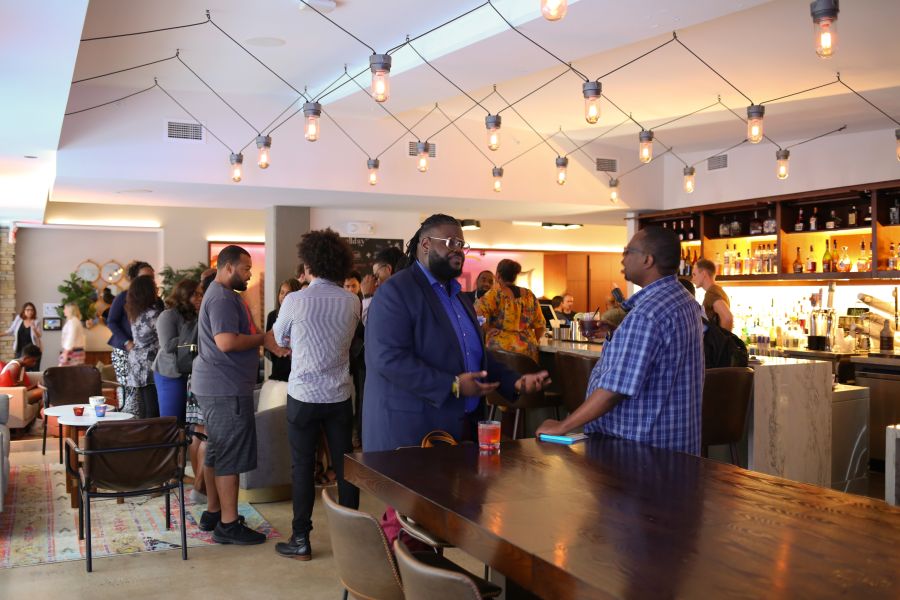
The Black community in Durham has continued to develop the legacy of those who came before them. Photo: SP Murray
Notably, across the city, there is a resurgence of Black entrepreneurship in the form of coffee shops, jazz venues, cultural experiences, nightlife, restaurants, corner stores and bookstores; all participating in building a new legacy of enterprise in Durham. Additionally, Durham's current business landscape encompasses a wide range of industries and sectors, each reflecting the ingenuity of its entrepreneurs. Black professionals in fields such as law, medicine, consulting and education have established their own practices and institutions, serving both Black and non-Black clientele while breaking down barriers and paving the way for future generations.
With a focus on community empowerment and economic inclusivity, Durham’s current business leaders are spearheading ventures that align technology, sustainability and social impact. Initiatives such as co-working spaces (Provident1898), entrepreneurial support organizations (NCCU Center for Entrepreneurship and Economic Development - CEED), incubators and mentorship programs (Black Founders Exchange) are nurturing talent and cultivating collaboration across diverse sectors.

There are many opportunities in Durham for members of the Black community to grow their businesses and launch their ideas. Photo: Keenan Hairston
Learning about and exploring Durham offers not only a glimpse into a deep, rich history but also an opportunity to experience the energy and vibe of a city built through the resiliency, innovation, determination and necessity of Black entrepreneurship.
more stories from the African American Heritage Guide
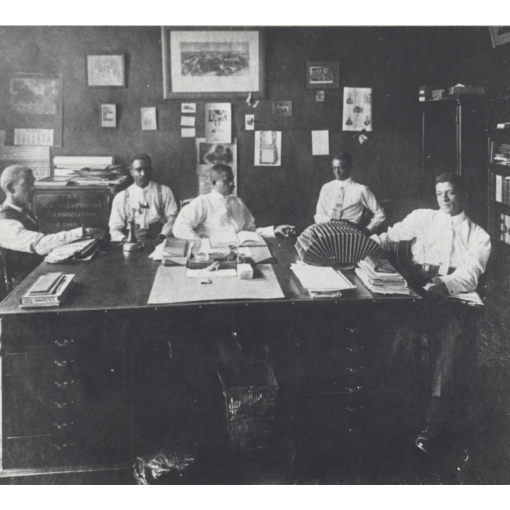
Durham's Parrish Street: A Legacy of Black Wall Street “Three men began the economic building of black Durham: a minister with college training, a physician with professional training, and a barber who saved his money”- W.E.B. DuBois Learn More
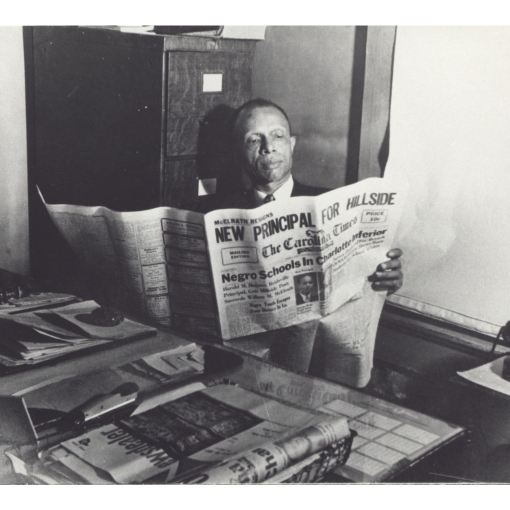
Louis Austin: The Spiritual Architect of Durham's Black Press The history of Black journalism is synonymous with the name Louis Austin, a community member who devoted his career to "The Truth Unbridled." Learn More
